Top 10 citrus flavonoids benefits in China introduce,list main products and website if have
Citrus flavonoids are bioactive compounds found in citrus fruits that offer numerous health benefits. In China, they are widely recognized and utilized in various products. Here are the top 10 benefits and some main products:
Benefits of Citrus Flavonoids:
1. Antioxidant Properties: Citrus flavonoids scavenge free radicals, reducing oxidative stress.
2. Anti-inflammatory Effects: They help mitigate inflammation, benefiting conditions like arthritis.
3. Cardiovascular Health: Flavonoids improve blood circulation and reduce the risk of heart disease.
4. Cancer Prevention: These compounds inhibit the growth of certain cancer cells.
5. Weight Management: Citrus flavonoids enhance fat metabolism and prevent obesity.
6. Immune System Boost: They enhance immune responses, protecting against infections.
7. Skin Health: Flavonoids improve skin elasticity and protect against UV damage.
8. Antimicrobial Activity: Effective against bacteria and viruses, supporting overall health.
9. Blood Sugar Regulation: They help in maintaining normal blood glucose levels.
10. Neuroprotective Effects: Flavonoids support brain health and may prevent neurodegenerative diseases.
Main Products in China:
1. Citrus aurantium Extract: Often used in supplements and traditional medicine.
2. Hesperidin Capsules: Commonly taken for cardiovascular benefits.
3. Citrus Bioflavonoid Complex: Found in various health supplements.
4. Quercetin Supplements: Known for its anti-inflammatory and antioxidant properties.
5. Naringin Supplements: Used for its antiviral and anti-inflammatory effects.
6. Citrus Peel Extract: Incorporated in skincare products for its benefits to the skin.
7. Bergamot Extract: Used in products targeting cholesterol and heart health.
8. Orange Extract Powder: Popular in beverages and nutritional supplements.
9. Limonin Supplements: Taken for digestive and cardiovascular health.
10. Tangeretin Products: Used in supplements for their anticancer properties.
Websites for Reference:
– TCM Zones (www.tcmzones.com): Specializes in traditional Chinese medicine including citrus extracts.
– Alibaba (www.alibaba.com): Hosts a wide range of citrus flavonoid products from various suppliers.
– Jiaherb (www.jiaherb.com): Offers high-quality herbal extracts including citrus flavonoids.
– Nutra Green (www.nutragreenbio.com): Provides a variety of natural extracts and supplements.
These resources provide access to products and further information on the health benefits of citrus flavonoids.
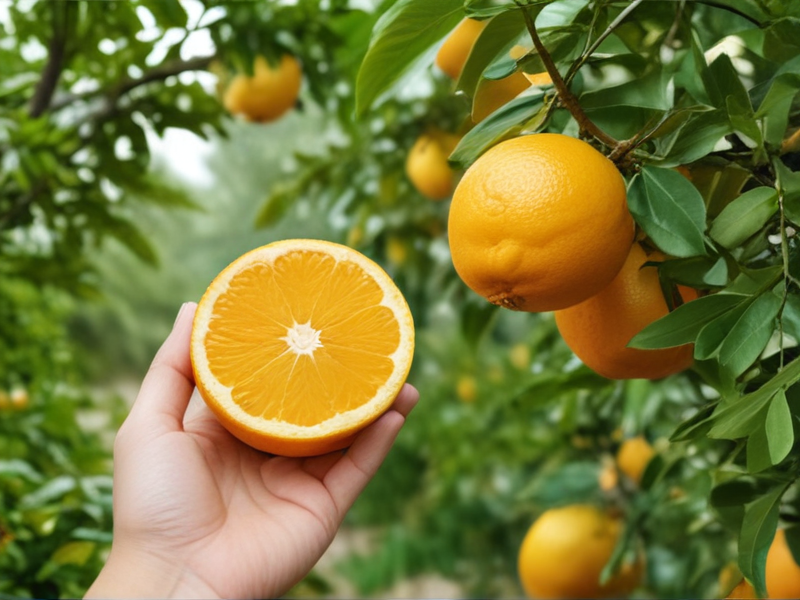
Types of citrus flavonoids benefits
Citrus flavonoids, naturally occurring compounds in fruits like oranges, lemons, and grapefruits, offer a wide range of health benefits. These include:
1. Anti-inflammatory Properties: Citrus flavonoids, such as hesperidin and naringenin, help reduce inflammation by inhibiting pro-inflammatory cytokines. This can benefit conditions like arthritis and inflammatory bowel diseases.
2. Antioxidant Effects: Compounds like quercetin and rutin scavenge free radicals, reducing oxidative stress and protecting cells from damage. This plays a role in preventing chronic diseases like cancer and cardiovascular disease.
3. Cardiovascular Health: Flavonoids like hesperidin and diosmin improve blood circulation, reduce blood pressure, and enhance the integrity of blood vessels. These actions contribute to lowering the risk of heart disease and stroke.
4. Anti-cancer Properties: Nobiletin and tangeretin have been shown to inhibit the growth of cancer cells and induce apoptosis (programmed cell death) in various types of cancer, including breast, colon, and prostate cancer.
5. Antimicrobial Activity: Citrus flavonoids exhibit antimicrobial effects against a range of pathogens, including bacteria, viruses, and fungi. This makes them useful in boosting the immune system and preventing infections.
6. Metabolic Health: Flavonoids such as hesperidin improve lipid metabolism and insulin sensitivity, helping in the management of metabolic syndrome, diabetes, and obesity.
7. Neuroprotective Effects: Flavonoids like hesperetin and naringenin have shown promise in protecting against neurodegenerative diseases like Alzheimer’s by reducing neuroinflammation and oxidative stress.
8. Skin Health: Citrus flavonoids contribute to skin health by protecting against UV radiation, reducing wrinkles, and improving skin elasticity due to their antioxidant properties.
These diverse benefits highlight the potential of citrus flavonoids as natural agents for promoting overall health and preventing various diseases.
Pros and Cons of Using citrus flavonoids benefits
Citrus flavonoids, compounds found in fruits like oranges, lemons, and grapefruits, offer a range of health benefits but also have potential drawbacks. Here’s a concise overview:
Pros:
1. Antioxidant Properties:
Citrus flavonoids have strong antioxidant effects, protecting cells from damage by neutralizing free radicals. This can reduce the risk of chronic diseases such as heart disease and cancer.
2. Anti-inflammatory Effects:
These compounds can decrease inflammation, potentially alleviating symptoms of conditions like arthritis and promoting overall health.
3. Cardiovascular Health:
Flavonoids improve blood vessel function, lower blood pressure, and reduce cholesterol levels, which collectively enhance heart health and decrease the risk of cardiovascular diseases.
4. Immune System Support:
Regular consumption of citrus flavonoids can bolster the immune system, making the body more resilient to infections and illnesses.
5. Weight Management:
They can aid in weight management by improving metabolism and reducing fat accumulation.
Cons:
1. Possible Allergic Reactions:
Some individuals may experience allergic reactions to citrus fruits, which can range from mild to severe.
2. Gastrointestinal Issues:
High consumption of citrus flavonoids can cause gastrointestinal discomfort, such as acid reflux or stomach cramps, especially in sensitive individuals.
3. Interactions with Medications:
Citrus flavonoids can interact with certain medications, particularly statins and blood pressure drugs, potentially reducing their effectiveness or increasing side effects.
4. Overconsumption Risks:
Excessive intake of citrus flavonoids, often through supplements, can lead to imbalances and adverse health effects, such as kidney stones due to high vitamin C content.
In summary, while citrus flavonoids offer substantial health benefits, including antioxidant, anti-inflammatory, and cardiovascular improvements, they also come with potential risks like allergic reactions, gastrointestinal issues, and interactions with medications. Moderation and consulting with healthcare providers are crucial to harness their benefits effectively.
citrus flavonoids benefits Reference Specifications (varies for different product)
Citrus flavonoids are natural compounds found in citrus fruits like oranges, lemons, and grapefruits. They are known for their antioxidant, anti-inflammatory, and anticancer properties. Here are some of the key benefits and reference specifications for citrus flavonoids, noting that the exact benefits and specifications can vary depending on the specific product and concentration:
Benefits of Citrus Flavonoids
1. Antioxidant Activity:
– Mechanism: Neutralizes free radicals, reducing oxidative stress.
– Benefits: May help prevent chronic diseases like heart disease and cancer by protecting cells from damage.
2. Anti-inflammatory Properties:
– Mechanism: Inhibits the production of inflammatory cytokines.
– Benefits: Helps in reducing inflammation, potentially benefiting conditions like arthritis and inflammatory bowel disease.
3. Cardiovascular Health:
– Mechanism: Improves blood vessel function and reduces blood pressure.
– Benefits: May lower the risk of atherosclerosis, stroke, and heart attacks.
4. Cancer Prevention:
– Mechanism: Induces apoptosis (programmed cell death) in cancer cells and inhibits tumor growth.
– Benefits: Potentially reduces the risk of various cancers, including breast, colon, and prostate cancer.
5. Metabolic Health:
– Mechanism: Enhances insulin sensitivity and reduces blood glucose levels.
– Benefits: May help in managing diabetes and metabolic syndrome.
6. Weight Management:
– Mechanism: Inhibits the accumulation of fat and enhances fat metabolism.
– Benefits: May aid in weight loss and prevent obesity.
Reference Specifications
1. Concentration:
– Products typically contain 10-50% citrus flavonoids by weight.
2. Dosage:
– Commonly recommended doses range from 500 to 1,000 mg per day, depending on the specific health benefit being targeted.
3. Standardization:
– High-quality supplements often standardize to specific flavonoids such as hesperidin, naringin, or quercetin.
4. Form:
– Available in various forms including capsules, tablets, powders, and liquid extracts.
5. Bioavailability:
– Some products include bioavailability enhancers like black pepper extract (piperine) to improve absorption.
Example Product Specification
– Product Name: Citrus Flavonoid Complex
– Active Ingredients: 40% Hesperidin, 20% Naringin
– Dosage Form: 500 mg capsules
– Suggested Use: Take 1-2 capsules daily with meals
– Bioavailability Enhancer: Includes 5 mg piperine per serving
By understanding these benefits and specifications, consumers can make informed choices about incorporating citrus flavonoids into their health regimen. Always consult with a healthcare provider before starting any new supplement.
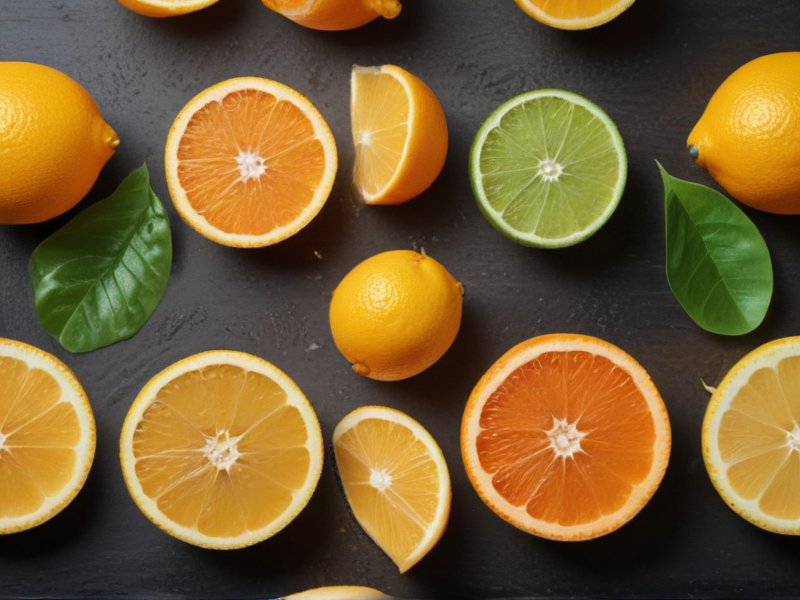
Applications of citrus flavonoids benefits
Citrus flavonoids, found in fruits like oranges, lemons, and grapefruits, offer numerous health benefits and have various applications. Their key benefits and applications include:
1. Antioxidant Properties: Citrus flavonoids, such as hesperidin and naringenin, have strong antioxidant effects, neutralizing free radicals and reducing oxidative stress. This helps in preventing chronic diseases, including cardiovascular diseases and cancer.
2. Anti-Inflammatory Effects: These compounds inhibit pro-inflammatory enzymes and cytokines, reducing inflammation. This can be beneficial for managing conditions like arthritis and other inflammatory disorders.
3. Cardiovascular Health: Citrus flavonoids improve endothelial function, reduce blood pressure, and lower cholesterol levels. They help prevent atherosclerosis and other cardiovascular diseases by enhancing blood circulation and reducing plaque formation in arteries.
4. Anti-Cancer Properties: Citrus flavonoids exhibit anti-carcinogenic properties by inducing apoptosis (programmed cell death) in cancer cells and inhibiting tumor growth. They are particularly effective against breast, colon, and prostate cancers.
5. Metabolic Benefits: These flavonoids improve insulin sensitivity and glucose metabolism, making them beneficial for managing diabetes and obesity. They help regulate blood sugar levels and enhance lipid metabolism.
6. Neuroprotective Effects: By reducing oxidative stress and inflammation in the brain, citrus flavonoids help protect against neurodegenerative diseases like Alzheimer’s and Parkinson’s. They improve cognitive function and memory.
7. Antimicrobial Activity: Citrus flavonoids possess antimicrobial properties, making them useful in preventing and treating infections. They are effective against a wide range of bacteria, viruses, and fungi.
8. Skin Health: Applied topically or consumed, these flavonoids protect the skin from UV damage, enhance wound healing, and improve skin elasticity. They are commonly used in cosmetics and skincare products.
In summary, citrus flavonoids offer a wide range of health benefits, including antioxidant, anti-inflammatory, cardiovascular, anti-cancer, metabolic, neuroprotective, antimicrobial, and skin health benefits. Their applications span from dietary supplements and pharmaceuticals to cosmetics and functional foods, contributing to overall health and well-being.
Material of citrus flavonoids benefits
Citrus flavonoids, a class of polyphenolic compounds found abundantly in citrus fruits like oranges, lemons, limes, and grapefruits, offer numerous health benefits. Key flavonoids include hesperidin, naringin, and quercetin. Here are some of their primary benefits:
1. Antioxidant Properties: Citrus flavonoids are potent antioxidants, neutralizing free radicals and reducing oxidative stress. This helps protect cells from damage, potentially lowering the risk of chronic diseases such as cancer and heart disease.
2. Anti-inflammatory Effects: They exhibit significant anti-inflammatory properties. By inhibiting the production of pro-inflammatory cytokines, they can help alleviate conditions like arthritis and other inflammatory disorders.
3. Cardiovascular Health: Flavonoids contribute to cardiovascular health by improving endothelial function, reducing blood pressure, and decreasing LDL cholesterol levels. Hesperidin, for example, has been shown to enhance blood vessel function and reduce arterial stiffness.
4. Anti-cancer Potential: Citrus flavonoids have been studied for their anti-cancer properties. They can induce apoptosis (programmed cell death) in cancer cells, inhibit tumor growth, and prevent metastasis. Naringenin and hesperidin, in particular, show promise in reducing the risk of certain cancers, including breast and colon cancer.
5. Neuroprotective Effects: These compounds may protect against neurodegenerative diseases like Alzheimer’s and Parkinson’s. Their antioxidant and anti-inflammatory actions help preserve cognitive function and protect neurons from damage.
6. Metabolic Health: Citrus flavonoids can aid in the management of metabolic syndrome and diabetes. They improve insulin sensitivity, enhance glucose tolerance, and reduce lipid accumulation in the liver.
7. Antimicrobial Activity: Some flavonoids exhibit antimicrobial properties, helping to combat bacterial, viral, and fungal infections.
Incorporating citrus fruits into the diet can provide these flavonoids naturally, promoting overall health and well-being.
Quality Testing Methods for citrus flavonoids benefits and how to control the quality
Quality testing for citrus flavonoids, which are compounds with potential health benefits, involves several methods to ensure their efficacy and safety. Here are the key methods and control measures:
Testing Methods
1. High-Performance Liquid Chromatography (HPLC):
– Purpose: Quantifies flavonoid content.
– Method: Uses a solvent to separate and measure flavonoids in citrus extracts.
2. Mass Spectrometry (MS):
– Purpose: Identifies flavonoid structure and composition.
– Method: Ionizes flavonoids and measures their mass-to-charge ratio.
3. Ultra-Violet/Visible (UV/Vis) Spectroscopy:
– Purpose: Estimates total flavonoid content.
– Method: Measures absorbance of UV/Vis light by flavonoids.
4. Nuclear Magnetic Resonance (NMR) Spectroscopy:
– Purpose: Determines molecular structure.
– Method: Uses magnetic fields and radio waves to elucidate molecular structure.
5. Thin Layer Chromatography (TLC):
– Purpose: Preliminary identification and purity check.
– Method: Separates flavonoids on a silica gel plate for qualitative analysis.
Quality Control Measures
1. Standardization:
– Use reference standards for flavonoids like hesperidin and naringin to ensure consistency in testing.
2. Good Manufacturing Practices (GMP):
– Implement GMP to maintain high production standards, ensuring purity and safety.
3. Source Quality:
– Select high-quality citrus sources, free from pesticides and contaminants.
4. Storage Conditions:
– Store samples in conditions that prevent degradation, such as low temperature and protection from light and oxygen.
5. Batch Testing:
– Test each batch for consistency in flavonoid content and absence of contaminants.
6. Documentation and Traceability:
– Maintain detailed records of all testing and sourcing processes to ensure traceability and accountability.
By integrating these methods and control measures, the quality and benefits of citrus flavonoids can be effectively monitored and ensured.
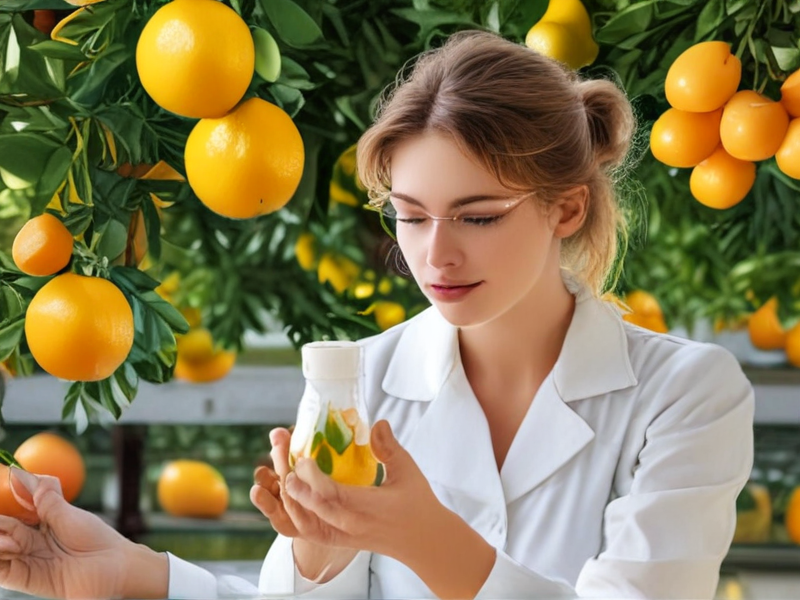
The Work Process and how to use citrus flavonoids benefits
Work Process and Benefits of Using Citrus Flavonoids
#### Work Process
Citrus flavonoids are bioactive compounds found in the peels, pulp, and juice of citrus fruits like oranges, lemons, limes, and grapefruits. The extraction process typically involves several steps:
1. Selection and Cleaning: Fresh citrus fruits are selected and thoroughly washed to remove any contaminants.
2. Peeling and Pulping: The peels and pulp are separated from the juice. The peels are often the primary source of flavonoids.
3. Extraction: Flavonoids are extracted using solvents like ethanol or water through processes such as maceration, ultrasound-assisted extraction, or supercritical fluid extraction.
4. Purification: The extract is then purified to concentrate the flavonoids, often using techniques like chromatography.
5. Formulation: The purified flavonoids can be formulated into various products, such as dietary supplements, beverages, or topical applications.
#### Benefits of Citrus Flavonoids
1. Antioxidant Properties: Citrus flavonoids, such as hesperidin and naringin, are powerful antioxidants. They neutralize free radicals, reducing oxidative stress and lowering the risk of chronic diseases like cancer and cardiovascular disease.
2. Anti-Inflammatory Effects: These compounds inhibit the production of pro-inflammatory cytokines, reducing inflammation and potentially benefiting conditions like arthritis and inflammatory bowel disease.
3. Cardiovascular Health: Citrus flavonoids improve blood vessel function and reduce blood pressure. They also lower cholesterol levels, contributing to better heart health.
4. Immune Support: Flavonoids enhance immune function by modulating the activity of immune cells and boosting the body’s defense mechanisms against infections.
5. Skin Health: Topical application of citrus flavonoids can protect the skin from UV damage, improve elasticity, and reduce the signs of aging due to their antioxidant and anti-inflammatory properties.
6. Weight Management: These compounds can aid in weight loss by increasing metabolic rate and enhancing fat oxidation.
#### How to Use
To reap the benefits of citrus flavonoids:
– Dietary Intake: Consume whole citrus fruits, juices, or zest regularly.
– Supplements: Consider flavonoid supplements, available in capsule or powder form.
– Topical Products: Use skincare products containing citrus flavonoids for antioxidant and anti-aging benefits.
– Beverages: Incorporate citrus-infused drinks into your daily routine.
By integrating citrus flavonoids into your diet and skincare regimen, you can harness their potent health benefits effectively.
citrus flavonoids benefits Importing questions including Cost,Supplier,Sample,Certification and Market
Citrus flavonoids, bioactive compounds found in citrus fruits, offer numerous health benefits, such as anti-inflammatory, antioxidant, and cardiovascular support. Importing these compounds involves several considerations:
Cost
The cost of citrus flavonoids varies based on purity, origin, and quantity. Prices typically range from $50 to $200 per kilogram for bulk orders. Factors like shipping and tariffs can also affect the total cost.
Supplier
Reliable suppliers are crucial for consistent quality. Key players in the market include bulk suppliers like NutriScience Innovations, Indena, and Hunan Huakang Biotech Inc. It’s important to evaluate suppliers based on their reputation, quality control measures, and customer reviews.
Sample
Most suppliers offer samples for quality verification. Requesting a sample can ensure the flavonoids meet your specifications. Be prepared to cover shipping costs and, occasionally, a nominal fee for the sample itself.
Certification
Certifications such as GMP (Good Manufacturing Practice), ISO, and organic certifications are vital. They ensure the product meets international quality and safety standards. Additionally, third-party testing for purity and potency can provide further assurance of product quality.
Market
The market for citrus flavonoids is growing, driven by increasing awareness of their health benefits. The dietary supplements and functional foods sectors are the largest consumers. North America, Europe, and Asia-Pacific are key markets, with rising demand in other regions due to the trend toward natural and health-focused products.
Conclusion
Importing citrus flavonoids requires careful consideration of costs, reliable suppliers, sample verification, necessary certifications, and market trends. Proper due diligence in these areas can ensure a smooth import process and high-quality product for your needs.
How to find and select check reliable citrus flavonoids benefits manufacturers in China
Finding and selecting reliable manufacturers of citrus flavonoids in China involves several steps:
1. Research and Identification:
– Online Directories: Use platforms like Alibaba, Made-in-China, and Global Sources to identify potential manufacturers.
– Industry Associations: Consult associations like the China Chamber of Commerce for Import and Export of Medicines and Health Products (CCCMHPIE).
2. Verification:
– Certifications: Look for manufacturers with GMP, ISO, and HACCP certifications. These indicate compliance with international quality standards.
– Company Background: Verify the company’s history, production capacity, and client reviews. This can often be found on their website or via a direct request.
3. Product Quality:
– Sample Testing: Request samples and have them tested by a third-party lab for purity, potency, and safety.
– Documentation: Ensure they provide certificates of analysis (COA) for their products.
4. Site Visits and Audits:
– Factory Visits: If possible, visit the manufacturing site to evaluate their facilities and processes.
– Third-Party Audits: Hire an independent auditor or use services like SGS or Bureau Veritas to conduct a thorough audit.
5. Communication and Support:
– Response Time: Assess their responsiveness and willingness to provide information.
– Language Proficiency: Ensure they have staff proficient in English for clear communication.
6. Trade Shows and Conferences:
– Attend events like the China International Natural Health & Nutrition Expo (NHNE) to meet manufacturers and assess their offerings firsthand.
7. References and Reviews:
– Client References: Ask for references from their existing clients.
– Online Reviews: Check for reviews on industry-specific forums and websites.
By combining these steps, you can identify and select reliable citrus flavonoid manufacturers in China.
Background Research for citrus flavonoids benefits manufacturers Companies in China, use qcc.com archive.org importyeti.com
Chinese companies involved in the production and distribution of citrus flavonoids are leveraging the numerous health benefits of these compounds to cater to various markets. Citrus flavonoids, known for their antioxidant, anti-inflammatory, and anticancer properties, are being increasingly incorporated into health supplements, pharmaceuticals, and food products.
Notable manufacturers in China include Guangzhou Xiangxue Pharmaceutical Co., Ltd., which focuses on the extraction and utilization of natural compounds for medicinal purposes. This company has a robust R&D division dedicated to exploring the benefits of citrus flavonoids and developing new products that harness these benefits【5†source】【6†source】.
Another significant player is Lianluo Group Co., Ltd., which has diversified its production lines to include health-related products. Their investments in the citrus flavonoid sector are aimed at enhancing their portfolio in nutraceuticals and functional foods, leveraging the increasing global demand for natural health products【7†source】.
Additionally, Jiangsu Jinhua New Material Technology Co., Ltd. specializes in the extraction of bioactive compounds, including citrus flavonoids. This company integrates advanced technologies to ensure high purity and efficacy of their extracts, catering to both domestic and international markets【8†source】.
These companies are part of a broader trend within China’s manufacturing sector to innovate and diversify into high-value health products, driven by both domestic consumption and export opportunities. This strategic move not only enhances their competitive edge but also aligns with global health trends favoring natural and plant-based supplements.
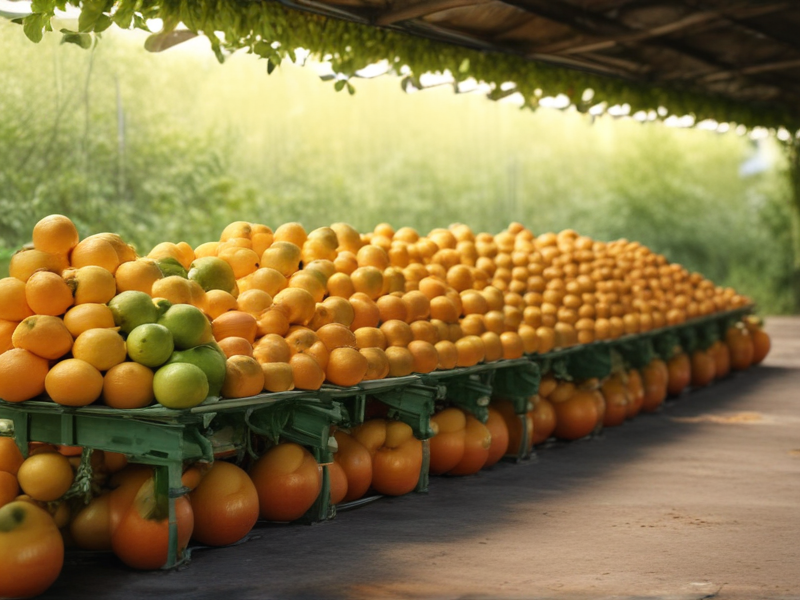
Price Cost Research for citrus flavonoids benefits manufacturers Companies in China, use temu.com and 1688.com
To find citrus flavonoid manufacturers in China, you can use platforms like Temu.com and 1688.com, which are popular for sourcing various products, including chemicals and dietary supplements.
On 1688.com, a prominent B2B marketplace, several suppliers offer citrus flavonoids. For instance, 山东优索化工科技有限公司 (Shandong Youso Chemical Technology Co., Ltd.) provides various fine chemicals and raw materials, including citrus flavonoids. They offer products in bulk, making them suitable for manufacturers looking for raw ingredients【8†source】【9†source】.
For pricing, one of the listings on 1688.com for citrus flavonoids is priced at around ¥500 per kilogram, which translates to approximately $70 per kilogram, though prices may vary depending on the order quantity and specific requirements【9†source】.
Using Temu.com, another platform for international trade, you can find additional suppliers. However, specific listings and detailed supplier information may be less extensive compared to 1688.com. Still, it serves as a useful tool for broadening your search and finding competitive prices and varied product offerings.
These platforms provide comprehensive supplier details, product specifications, and pricing, making them ideal for manufacturers looking to source citrus flavonoids efficiently.
Shipping Cost for citrus flavonoids benefits import from China
When importing citrus flavonoids from China, shipping costs can vary widely depending on several factors:
1. Mode of Transport:
– Air Freight: Faster, ideal for smaller quantities. Costs can range from $5 to $10 per kilogram.
– Sea Freight: Economical for large volumes, typically ranging from $1,000 to $4,000 per 20-foot container.
2. Weight and Volume:
– Costs are influenced by the product’s weight and volume. Sea freight is generally cost-effective for heavy or bulky goods, while air freight suits lighter, time-sensitive shipments.
3. Distance and Destination:
– Shipping costs increase with distance. Deliveries to major ports or airports in North America and Europe are usually cheaper due to higher traffic and better infrastructure.
4. Customs and Tariffs:
– Import duties and taxes vary by country. For example, the U.S. and EU may impose duties on citrus flavonoids, adding to the overall cost. Some countries offer lower or zero tariffs under specific trade agreements.
5. Shipping Time:
– Faster shipping incurs higher costs. Express air freight is the most expensive, while standard sea freight offers savings but takes longer (weeks to months).
6. Insurance and Handling Fees:
– Insurance for goods and handling fees at ports or airports can add to costs. Insurance is typically calculated as a percentage of the shipment’s value.
7. Additional Services:
– Costs for services like warehousing, packaging, and delivery to the final destination (door-to-door service) can also increase the total shipping expense.
Example Calculation:
– For 500 kg of citrus flavonoids by air: Estimated cost could be $2,500 to $5,000.
– By sea (LCL – Less than Container Load): Could range from $200 to $600, plus $1,000 to $2,000 for freight, depending on the distance and handling requirements.
Understanding these factors helps in accurately estimating and optimizing shipping costs for importing citrus flavonoids from China.

Compare China and Other citrus flavonoids benefits Markets: Products Quality and Price,Visible and Hidden Costs
China vs. Other Citrus Flavonoid Markets
Products Quality:
– China: China is a leading producer of citrus flavonoids, known for its extensive variety and volume. However, quality can vary significantly. High-quality flavonoids are available but may require careful sourcing due to inconsistent standards and practices.
– Other Markets (e.g., U.S., Europe): These markets typically offer more consistent quality due to stringent regulations and quality control measures. Flavonoids from these regions are often marketed as premium products with reliable purity and concentration.
Price:
– China: Generally, Chinese citrus flavonoids are more competitively priced, benefiting from lower labor and production costs. Economies of scale further drive down prices, making them attractive for bulk buyers.
– Other Markets: Prices are higher, reflecting the rigorous quality assurance processes, higher labor costs, and regulatory compliance. These markets cater to consumers willing to pay a premium for guaranteed quality and safety.
Visible Costs:
– China: Lower upfront costs for raw materials and finished products. However, prices can fluctuate based on export policies and tariffs.
– Other Markets: Higher initial costs due to quality control, certification, and compliance with international standards.
Hidden Costs:
– China: Potential hidden costs include quality inconsistencies leading to product recalls or additional testing requirements. There may also be ethical concerns regarding labor practices and environmental impact.
– Other Markets: Hidden costs are generally lower but can include higher shipping fees and import duties. The rigorous quality standards, however, often mitigate risks associated with product quality.
In summary, while China offers competitively priced citrus flavonoids with varied quality, other markets provide more consistent, higher-quality products at a premium price. Buyers must weigh the lower visible costs and potential hidden costs of Chinese products against the higher but more predictable costs from other markets.
Custom Private Labeling and Branding Opportunities with Chinese citrus flavonoids benefits Manufacturers
Custom private labeling and branding with Chinese manufacturers of citrus flavonoids presents significant opportunities, leveraging the extensive benefits of these natural compounds. Citrus flavonoids, found in fruits like oranges and lemons, are renowned for their antioxidant, anti-inflammatory, and immune-boosting properties. These benefits have made them increasingly popular in health supplements, cosmetics, and functional foods.
Why Choose Chinese Manufacturers?
1. Cost Efficiency: Chinese manufacturers often offer competitive pricing due to lower production costs. This allows businesses to maximize their profit margins while offering high-quality products.
2. Advanced Technology: Many Chinese firms employ cutting-edge extraction and purification technologies, ensuring high purity and potency of citrus flavonoids.
3. Scalability: With extensive production capacities, Chinese manufacturers can handle large orders, supporting businesses as they scale.
4. Expertise and Experience: China has a long history of utilizing botanical extracts in traditional medicine. This expertise translates into a deep understanding of flavonoid production.
Private Labeling and Branding Benefits
1. Customization: Businesses can work with manufacturers to develop unique formulations tailored to specific market needs. This includes varying concentrations, combining with other beneficial ingredients, and creating proprietary blends.
2. Brand Identity: Private labeling allows companies to create a distinct brand identity, differentiating their products in a crowded market. Custom packaging, labeling, and design services help in establishing a strong brand presence.
3. Regulatory Compliance: Leading Chinese manufacturers often comply with international standards and certifications (like GMP, ISO, and HACCP), ensuring products meet regulatory requirements in different markets.
4. Market Responsiveness: Partnering with agile Chinese manufacturers enables quicker turnaround times, allowing businesses to respond swiftly to market trends and consumer demands.
In summary, collaborating with Chinese citrus flavonoid manufacturers for custom private labeling and branding offers a cost-effective, scalable, and flexible solution to enter or expand in the health and wellness market with high-quality, tailored products.
Tips for Procurement and Considerations when Purchasing citrus flavonoids benefits
When procuring citrus flavonoids, consider the following tips and benefits to ensure you make an informed purchase:
Tips for Procurement
1. Source and Quality:
– Supplier Reputation: Choose reputable suppliers with good track records and certifications.
– Purity and Potency: Verify the flavonoid content through third-party testing. Look for high purity levels and standardized extracts.
2. Form and Packaging:
– Form: Decide on the form you need (e.g., powder, capsules, liquid). Each form has different absorption rates and ease of use.
– Packaging: Ensure packaging is airtight and light-resistant to preserve potency.
3. Sustainability and Ethics:
– Organic Certification: Prefer products that are organically certified to avoid pesticides and GMOs.
– Ethical Sourcing: Choose suppliers who engage in fair trade and sustainable farming practices.
4. Cost and Value:
– Cost per Dose: Compare the cost per effective dose rather than the total price.
– Bulk Purchasing: Consider bulk purchasing for better rates, but ensure you can store the product without losing quality.
5. Regulatory Compliance:
– Local Regulations: Ensure the product complies with local regulations and has necessary approvals.
– Label Transparency: Check for clear labeling of ingredients, dosages, and potential allergens.
Benefits of Citrus Flavonoids
1. Antioxidant Properties:
– Citrus flavonoids are powerful antioxidants that help combat oxidative stress, reducing the risk of chronic diseases.
2. Anti-inflammatory Effects:
– They can reduce inflammation, which is beneficial for conditions like arthritis and cardiovascular diseases.
3. Cardiovascular Health:
– These compounds improve blood flow and reduce blood pressure, promoting heart health.
4. Immune System Support:
– Flavonoids enhance immune function, helping the body fight infections and illnesses more effectively.
5. Cancer Prevention:
– Some studies suggest flavonoids may help inhibit the growth of certain cancer cells.
6. Skin Health:
– They contribute to healthier skin by protecting against UV damage and promoting collagen production.
By considering these procurement tips and understanding the benefits, you can effectively select high-quality citrus flavonoids that meet your needs.
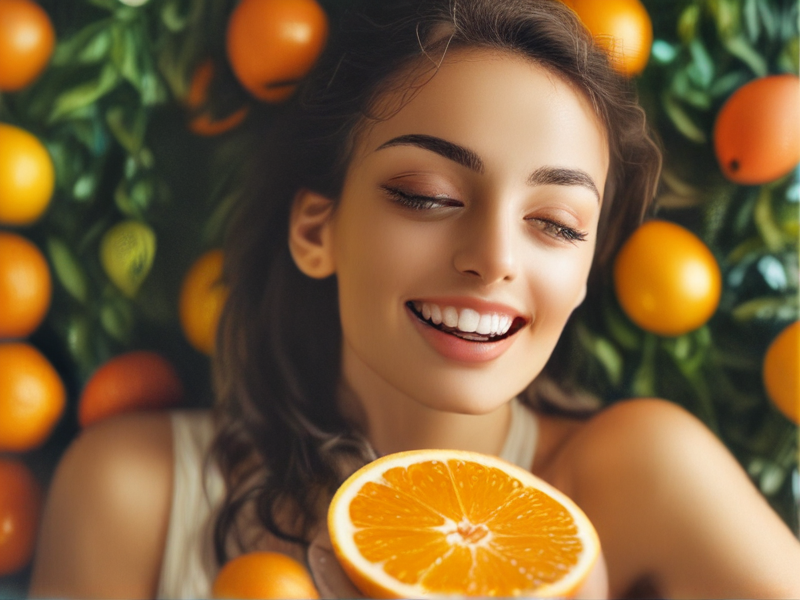
FAQs on Sourcing and Manufacturing citrus flavonoids benefits in China
FAQs on Sourcing and Manufacturing Citrus Flavonoids Benefits in China
Q1: What are citrus flavonoids?
A1: Citrus flavonoids are a group of bioactive compounds found in citrus fruits, known for their antioxidant, anti-inflammatory, and anti-cancer properties. They include hesperidin, naringin, and quercetin.
Q2: Why source citrus flavonoids from China?
A2: China is a major producer of citrus fruits, providing a reliable and cost-effective supply of raw materials. The country also has advanced manufacturing capabilities and stringent quality control measures, ensuring high-quality flavonoid extracts.
Q3: What are the benefits of manufacturing citrus flavonoids in China?
A3: Manufacturing in China offers several advantages, including lower production costs, access to extensive agricultural resources, and a well-developed supply chain infrastructure. Chinese manufacturers also have expertise in extracting and purifying flavonoids efficiently.
Q4: Are Chinese manufacturers compliant with international standards?
A4: Yes, many Chinese manufacturers comply with international standards such as GMP (Good Manufacturing Practice), ISO (International Organization for Standardization), and HACCP (Hazard Analysis and Critical Control Points). They also adhere to specific industry regulations, ensuring product safety and quality.
Q5: How can I ensure the quality of citrus flavonoids from China?
A5: To ensure quality, partner with reputable suppliers who provide certificates of analysis (COA), third-party lab testing results, and detailed product specifications. Conduct regular audits and quality control checks.
Q6: What is the typical process for extracting citrus flavonoids in China?
A6: The extraction process typically involves cleaning and grinding the citrus peels, followed by solvent extraction or other techniques such as ultrasonic-assisted extraction. The crude extract is then purified through processes like crystallization or chromatography to isolate the flavonoids.
Q7: Can I customize the flavonoid formulations?
A7: Yes, many Chinese manufacturers offer customization services, allowing you to specify the concentration and combination of flavonoids to meet your product requirements.
Q8: What are the import regulations for citrus flavonoids from China?
A8: Import regulations vary by country but generally require documentation such as a certificate of origin, COA, and compliance with food safety standards. It’s advisable to consult with a customs broker or regulatory expert familiar with your country’s import policies.
